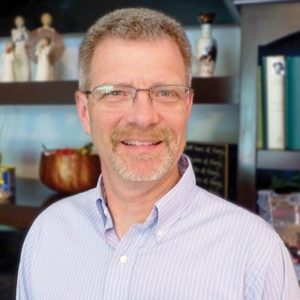“To everything there is a season, and a time for every purpose under the heavens.” (Ecclesiastes 3:1). On a first reading that phrase seems so peaceful, natural. It speaks to an expectation of change that is reassuring. The reality of change can be quite different, as, for instance, the dramatic upheavals we have faced in 2020. 2020 has taken a wrecking ball to our collective status quo and pushed us into places we would not have thought possible. What we did before, what others did for us, how we interact, our daily routines, childcare responsibilities, holidays, funerals, weddings, family reunions, vacations — all the momentous occasions and events we use to mark the passing of time have been turned upside down.
One of the hardest aspects of the present situation is that we don’t have control of the timing or extent of the changes. When faced with radical, unexpected change, change seems incredibly difficult to accept. Fortunately, there is a wellspring of wisdom to help us down this path. Some of the ideas and strategies that follow are proven to aid in making the most of new opportunities disguised as barriers or “change.”
Many of us believe that willpower is the engine of change. Anyone who has ever been on a diet or tried to quit using tobacco has learned the limits of relying on willpower alone. Willpower is frequently overrated in making significant life altering change. Simple willpower is not enough when we are facing COVID-19 and racial reconciliation. We need strategies and focus to come through what we are facing so we can emerge as better people in an improved society.
Winston Churchill said, “To improve is to change; to be perfect is to change often.” We may perceive our lives existing in a status quo, but in reality our societies, organizations, bodies, minds, and possessions are in some state of constant change. Our lived truth is really that time is change and change is constant. This reality forces us to consider our expectations and explore helpful strategies for change. The expectation-reality gap is when what we want is at variance from what we get. We typically respond to this gap with a negative emotion like anger, sadness, or fear. However, if we shape our expectations to be closer to the reality of our experience, we are better positioned to accept or acknowledge the truth of our situation. Practicing something called radical acceptance can keep us grounded, allowing us to appreciate the positive aspects of our lives even when life is full of change. Radical acceptance involves focusing on our immediate reality and acknowledging exactly what we are feeling and experiencing, especially if it is negative or uncomfortable. When changes occur that we disagree with or are outside of our control, like a worldwide pandemic, radically accepting that things are different and that we have strong feelings about it can actually free us to choose our response instead of acting out of a negative emotion like fear.
“When we are no longer able to change a situation, we are challenged to change ourselves,” writes Viktor Frankl. It is important to grasp the difference between what we can and cannot control. We didn’t choose the pandemic or the government’s response to it. We don’t control the decisions our spouses and children make. That doesn’t mean that we don’t have a role to play in choosing healthy responses and acting consistent with our values. Self-efficacy is the belief in “how well one can execute courses of action required to deal with prospective situations” (Albert Bandura). Self-efficacy is basically a super power of belief in our ability to change ourselves and influence our environments. It is the difference between giving up and striving to make a difference. The beauty of this power is that we aren’t dependent on a radioactive spider like Spiderman to receive it. It is choosing to believe in ourselves, to “buy in” to positive thoughts about ourselves and our situations. Other sayings that reinforce self-efficacy are from Norman Vincent Peale, who said, “Change your thoughts and change your world,” and George Bernard Shaw, who wrote, “Those who cannot change their minds cannot change anything.” Self-efficacy is the opposite of the thought, “I can’t handle this.” Let’s choose to believe that we can make a difference in improving our situations and be a positive influence on those around us.
Another principle that will help us navigate this new world of 2020 is optimism. It is the simple belief or hope in a good outcome and that things will be all right, somehow, some way. It helps to believe that we can be a force for positive change in the midst of the chaos. The classic quote here is from Ghandi, “Be the change you want to see in the world.” If you complain about society, you are essentially complaining about yourself if you are not acting to make things better. Be the one who is calm, giving, kind, and accepting of others. We are far more likely to reach out, take risks, and speak up when we believe it will make a positive difference and that good will result.
A final reminder regarding change is from Ellen Glasgow, “All change is not growth, as not all movement is forward.” If we are to redeem the challenges facing us and make use of this time, consider beginning with acknowledging your expectations, accepting the current reality, then believing in your ability to effect positive change — and go make a difference!
If you would like coaching or assistance with the principles of self-efficacy, radical acceptance, and optimistic mindset, call Midland Valley Behavioral Health at Hope Community Counseling Center, 803.380.9004. We would happy to be of assistance.
























